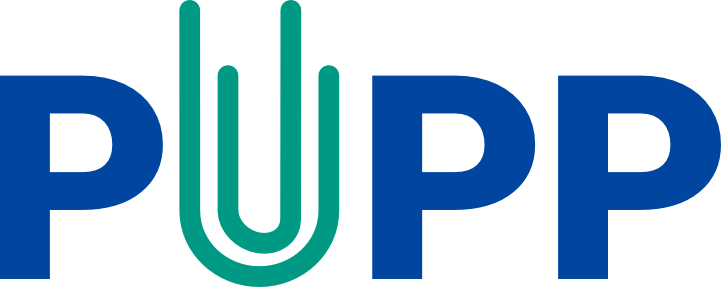 Gatineau-Ottawa May 21-24 2024: Joint International Conference on Ethics and Integrity in Academia: Plagiarism, Prevention and Pedagogy in a New Digital Era.
Gatineau-Ottawa May 21-24 2024: Joint International Conference on Ethics and Integrity in Academia: Plagiarism, Prevention and Pedagogy in a New Digital Era.
Symposium 1, under the coordination of Dimitar Angelov (Coventry University) and Catherine Déri (Université du Québec en Outaouais).
As part of the conference, the coordinator is looking for 10 to 12 contributing writers in preparation for the symposium related to the theme “Academic Writing and Integrity“. This call is not limited to PUPP members, so if you know of anyone who might be interested, please pass the call along.
Full PDF – Symposium 1 – Academic Writing and Integrity in the Age of Diverse Higher Education
“From theoretical foundations to practical applications
The expression “university literacy” defines a discipline interested in the teaching and learning of university-level discourse genres to understand the identities, practices, and power dynamics of this education milieu (Crahay, 2012; Guay et al., 2015; Hilsdon et al., 2019). It is gaining popularity with a focus placed on the contextual, social, and cultural dimensions of reading and writing (Delcambre, 2012). When addressing academic writing, Badger and White (2000) consider that it primarily pertains to the act of composing a text adhering to rules of vocabulary usage, syntax, and appropriate discourse markers. However, the production of a university-level text is not linear; it is an iterative process of expression and creation that does not only include the action of adding words on a blank page (Dobiecki, 2006). According to Tremblay-Wragg et al. (2021), academic writing involves back-and-forth movements between the planning of one’s work, the reflexive analysis of information, and the composition of the actual written product. In the digital era, this dynamic process implies the mobilization of digital scrapbooking strategies (DSS), represented by 23 cognitive actions categorized into three competencies: information searching, writing, and referencing (Peters, 2015). Any deficiencies observed, in these three categories of competencies, may result in university students plagiarizing, be it intentionally (Bergadaa, 2015) or unintentionally (Eaton, 2021), which impedes on the academic integrity of their work. The implicit linkage between academic writing and academic integrity, in a practical sense, triggers a reflection on the explicit intersections between these two fields of research.
The link between academic integrity and academic writing
According to Macfarlane, Zhang, and Pun (2014), academic integrity “encompasses the values, behavior, and conduct of academics in all aspects of their practice” (p. 339). In this regard, the International Center for Academic Integrity (2021) identified the following values that scholars and students should promote: honesty, trust, fairness, respect, responsibility and courage. These values can be assessed through tangible behaviors and conduct that are easily “detectable” in someone’s written work, for example, by adhering to proper referencing practices. Therefore, we contend that academic integrity and academic writing are closely linked, especially in the extensive body of literature that addresses plagiarism detection. As such, several studies examined the rates of plagiarism cases (Béland, 2020; Walker, 2010), the motivations behind plagiarism (Doss et al., 2016; Skaar et Hammer, 2013), and the means to detect plagiarism (Foltýnek et al., 2019; Mphahlele et McKenna, 2019). The cross-references between writing and integrity discourses are further evidenced by Jamieson and Howard (2019) who advocate for the distinction between intentional cheating conduct (i.e., academic ghostwriting) that represents a breach in academic integrity and unintentional behaviors (i.e., faulty citations) that should be treated as poor writing practices. In the same vein, there is a growing body of research that is moving away from detecting and punishing misconduct, and towards a greater focus on prevention or restorative practices (Eaton, 2021).
Diversity as a critical lens
The current volume aims to explore the intersections between academic writing and academic integrity practices, policies and theory in increasingly pluralistic and heterogeneous higher education (HE) contexts. Arguably, the HE sectors in most developed countries are experiencing an unprecedented period of diversification of students and staff triggered by late 20th and early 21st century economic, demographic and political trends, such as internationalization (Adams, 2013; Wit 2014); massification (Tavares et al., 2022); equity, diversity and inclusion (Smith, 2014) and decolonization (Santos, 2017, Bhambra et al.,2018). These developments have raised important questions about social justice, access to education, representation, kinds and hierarchies of knowledge(s) which, in turn, challenge established practices of regulating and validating knowledge production, including in terms of academic writing and academic integrity. This volume responds to a gap in the broad field of academic integrity research which is currently dominated by the monocultural pedagogic and research concerns of mostly Caucasian and mostly anglophone scholars and practitioners (Eaton, 2022). It aims to open up space where established discourses on writing and integrity at all levels of HE are interrogated and reinterpreted through the lens of cultural difference.
One analytic concept that can assist in this regard is that of ‘superdiversity’, introduced by Vertovec (2007). Although originally related to the processes of exponential migration of nationally, ethnically and culturally diverse populations into the UK since the 1990s (Vertovec, 2007), superdiversity has more recently been understood as a global phenomenon and has been applied variously to the integration of international students, migrant populations, underrepresented social groups or indigenous populations into higher education (Donahue, 2018; Donahue, 2023; Madiba, 2018).
Contributors to this volume are invited to use superdiversity, or related concepts that capture the cultural multiplicity of 21st century global HE, to critique academic writing and integrity in relation to any of the following sets of problems:
- student writing, assessment and literacy and their pedagogical implications;
- student support and development work, including as carried out by writing centers or skills units;
- HE sector and institutional policies regulating teaching and learning in and across disciplinary contexts;
- research practices in local and/or global contexts, including research ethics and collaborations;
- research development and supervision practices and pedagogies;
- writers’ identities, languages and voices in the context of disciplinary or inter- /transdisciplinary academic discourses.”
Please submit chapter proposals (250 words) in English only by August 01, 2023 to Dimitar Angelov dimitar.angelov@coventry.ac.uk or Catherine E. Deri catherine.deri@uqo.ca.. Proposals must include a clear description of the research question and issues to be explored, the type of chapter (e.g., theoretical or research-based), and the anticipated length of the chapter.
You will be informed if your proposal is accepted by September 15, 2023. If accepted, you are invited to submit an electronic copy of your full paper (approximately 3000-5000 words) by February 15th, 2024 for peer discussion and review amongst members of PUPP.
Important dates to remember
- Deadline for expression of interest and contribution proposal (approx. 300 words, excluding references) September 1, 2023
- Response to proposals October 30, 2023
- Submission of first draft (5000 words) February 15, 2024
- Symposisum at PUPP conference May 21-22, 2024
Full PDF – Symposium 1 – Academic Writing and Integrity in the Age of Diverse Higher Education
Other call for papers HERE.
References:
- Adams, J. (2013). Collaborations: The fourth age of research. Nature, 497(7451), 557-560. https://doi.org/10.1080/01419870701599465
- Badger, R. & White, G. (2000). A process genre approach to teaching writing. ELT Journal, 54(2), 153-160. https://doi.org/10.1093/elt/54.2.153
- Béland, S. (2020). La pandémie de COVID-19, terreau fertile pour le plagiat. In A. Desrochers (Ed.), Le 15-18 : Société Radio-Canada.
- Bergadaa, M. (2015). Une brève histoire de la lutte contre le plagiat dans le monde académique. Questions de communication, 1(27), 171-188. https://doi.org/10.4000/questionsdecommunication.9787
- Bhambra, G.K., Gebrial, D., & Nisancolu, K. (Eds.) (2018). Decolonising the university. Pluto Press.
- Crahay, M. (2012). Les littéracies universitaires peuvent-elles s’enseigner? Quelques questions suscitées par une pratique de formation en première année d’université. In M-C. Pollet (Ed.), De la maîtrise du français aux littéracies dans l’enseignement supérieur (pp. 63- 78). Presses universitaires de Namur.
- Delcambre, I. (2012). De l’utilité de la notion de littéracies pour penser la lecture et l’écriture dans l’enseignement supérieur. Diptyque, 24, 19-35. https://hal.science/hal-01593000v1
- Dobiecki, B. (2006). Rédiger son mémoire en travail social. Toutes les clés pour le réussir. Éditions Sociales Françaises.
- Donahue, C. (2018). Writing program administrators in an internationalizing future: What’s to know? In S. K. Rose, & I. Weiser (Eds.), The internationalization of US writing programs (pp. 21–43).
- Donahue, C. (2023). “We are the ‘Other’”: The future of exchanges between writing and language Studies. In J. Hall & B. Horner (Eds.), Toward a Transnational University: WAC/WID Across Borders of Language, Nation, and Discipline (pp. 35–58). https://doi.org/10.37514/ATD-B.2023.1527.2.02
- Doss, D. A., Henley, R., Gokaraju, B., McElreath, D., Lackey, H., Hong, Q., et Miller, L. (2016). Assessing domestic vs. international student perceptions and attitudes of plagiarism. Journal of International Students, 6(2), 542.
- Eaton, S. (2021). Plagiarism in Higher Education: Tackling Tough Topics in Academic Integrity. Librairies Unlimited.
- Eaton, S.E. (2022). New priorities for academic integrity: Equity, diversity, inclusion, decolonization and Indigenization. International Journal for Educational Integrity, 18(1), 1-12. https://doi.org/10.1007/s40979-022-00105-0
- Foltýnek, T., Meuschke, N., et Gipp, B. (2019). Academic Plagiarism Detection: A Systematic Literature Review. ACM Comput. Surv., 52(6), Article 112. doi: 10.1145/3345317
- Guay, A., Émery-Bruneau, J., & Lafontaine, L. (2015). Les pratiques d’écriture déclarées d’étudiants en formation initiale à l’enseignement et le niveau de littératie universitaire. In L. Lafontaine & J. Pharand (Eds.), Littératie. Vers une maitrise des compétences (pp. 207–226). Presses de l’Université du Québec.
- Hilsdon, J., Malone, C., & Syska, A. (2019) Academic literacies twenty years on: a community- sourced literature review. Journal of Learning Development in Higher Education, 15, 1- 47. https://doi.org/10.47408/jldhe.v0i15.567
- International Center for Academic Integrity (2021). The Fundamental Values of Academic Integrity (3rd éd.). https://academicintegrity.org/images/pdfs/20019_ICAI-Fundamental- Values_R12.pdf
- Jamieson, S. & Howard, R. M. (2019). Rethinking the relationship between plagiarism and academic integrity. International Journal of Technologies in Higher Education, 16(2), 69– 85. https://id.erudit.org/iderudit/1067061ar
- Madiba, M. (2018). The multilingual university. In A. Creese & A. Blackledge (Eds.), The Routledge handbook of language and superdiversity (pp. 504-517).
- Macfarlane, B., Zhang, J., & Pun, A. (2014). Academi integrity : a review of the literature. Studies in Higher Education, 39(2), 339-358. https://doi.org/10.1080/03075079.2012.709495
- Mphahlele, A., et McKenna, S. (2019). The use of turnitin in the higher education sector: Decoding the myth. Assessment & Evaluation in Higher Education, 44(7), 1079-1089.
- Peters, M. (2015). Enseigner les stratégies de créacollage numérique pour éviter le plagiat au secondaire. Revue canadienne de l’éducation, 38(3), 1-28. https://journals.sfu.ca/cje/index.php/cje-rce/article/view/1878
- Santos, B.de S. (2017). Decolonising the university: the challenge of deep cognitive justice. Cambridge Scholars Publishing.
- Skaar, H., et Hammer, H. (2013). Why students plagiarise from the internet: The views and practices in three Norwegian secondary classrooms. International Journal for Educational Integrity, 9(2), 15-34.
- Smith, D.G. (Ed.) (2014). Diversity and Inclusion in higher education: Emerging perspectives on institutional transformation (1st ed.). Routledge. https://doi.org/10.4324/9781315797885
- Tavares, O., Sá, C., Sin, C., & Cham, A.A. (2022). Equity policies in global higher education: Reducing inequality and increasing participation and attainment. Springer International Publishing AG.
- Tremblay-Wragg, É, Déri, C.E., Vincent, C., Labonté-Lemoyne, E., Mathieu-C., S., Coté-Parent, R. et Villeneuve, S. (2021). Pandémie oblige, les étudiant.e.s aux cycles supérieurs se tournent vers le numérique pour structurer leur rédaction, briser l’isolement et persévérer. Revue internationale des technologies en pédagogie universitaire, 18(1), 291-304. https://doi.org/10.18162/ritpu-2021-v18n1-25
- Vertovec, S. (2007). Super-diversity and its implications. Ethnic and Racial Studies, 30(6), 1024- 54. https://doi.org/10.1080/01419870701599465
- Walker, J. (2010). Measuring plagiarism: researching what students do, not what they say they do. Studies in Higher Education, 35(1), 41-59. doi: http://dx.doi.org/10.1080/03075070902912994
- Wit, H. de (2014). The different faces and phases of internationalisation of higher education. In A. Maldonado-Maldonado, & R. M. Bassett (Eds.), The Forefront of international higher education: A festschrift in honor of Philip G. Altbach (pp.89–99).
